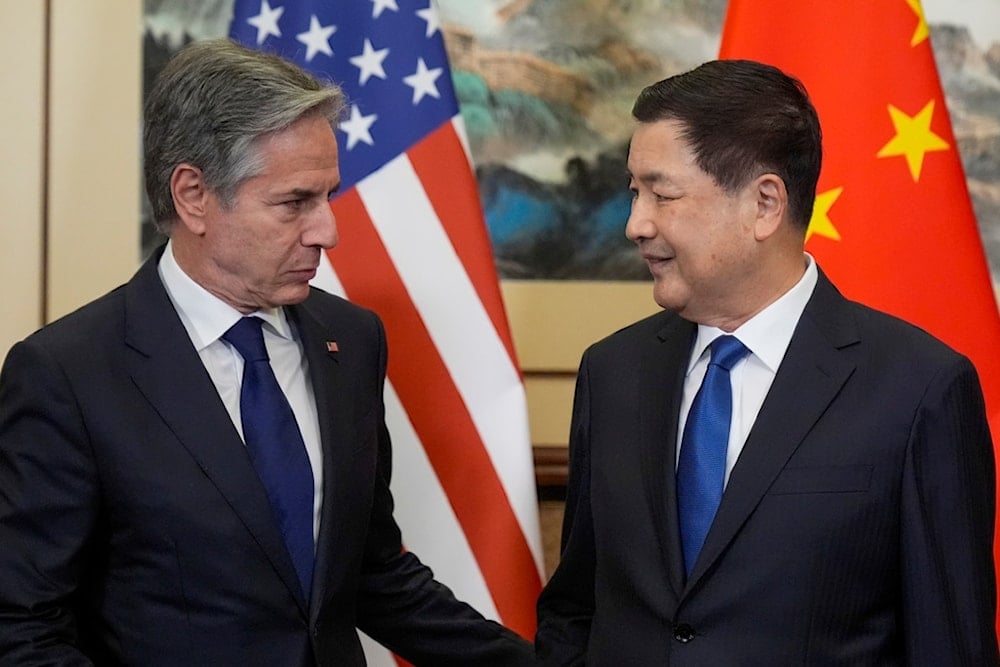Americans increasingly view China as an enemy, Pew survey shows
Four in five Americans continue to view China unfavorably, with 43% expressing very unfavorable opinions.
-

US Secretary of State Antony Blinken meets with China's Minister of Public Security Wang Xiaohong at the Diaoyutai State Guesthouse, Friday, April 26, 2024, in Beijing, China. (AP)
A recent survey by the Pew Research Center found a significant shift in American sentiment toward China.
The findings reveal that a vast majority of Americans hold unfavorable views of China, with an increasing number considering it an enemy of the United States.
This sentiment is found to be significantly higher than in previous years, thus signaling a growing concern among the American public regarding China's role in global affairs.
Key findings from the survey include that 42% of respondents now perceive China as an enemy of the US, marking the highest percentage since the survey began in 2021 and a significant increase from just a quarter two years ago.
Four in five Americans continue to view China unfavorably, with 43% expressing very unfavorable opinions.
It also found that half of the respondents see China as a competitor, while only 6% view it as a partner to the US.
Read more: Russia, China ditch dollar; Moscow announces new trade corridors
These sentiments coincide with a period of heightened tensions between the two nations, characterized by trade restrictions, sanctions, and proposed bans on Chinese companies like ByteDance and TikTok.
Both Democratic incumbent Joe Biden and Republican rival Donald Trump have advocated for tough stances on China, ideas which align with public opinion reflected in the survey.
The survey also details concerns about China's growing global influence and regional disputes with neighboring countries.
Many Americans perceive China's impact on the US economy as negative, with a significant portion blaming China for the current economic situation.
Views on China vary significantly based on factors such as age and political affiliation. Republicans and older Americans tend to hold more negative views of China, while younger individuals are more likely to have favorable views.
Read more: Russia, China reach near complete de-dollarization in bilateral trade

 2 Min Read
2 Min Read








